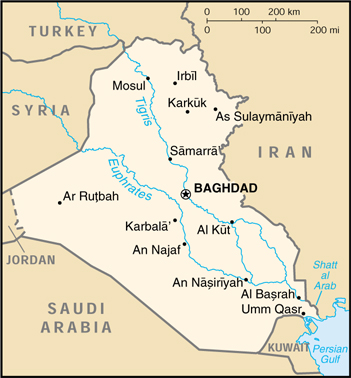

Status Quo Side: Iraq
Non-Status Quo Side: Kurds
Region: Middle East
Conflict Type: External Intervention
Issues in Dispute: Ethnic, Independence
During World War II Kurdish nationalism in Iraq acquired a formidable leader, Massoud Barzani, who went into exile in 1945 under Soviet protection. In 1958 the revolutionary regime of Gen. Abdul Karim Kassen invited him to Baghdad and permitted a Kurdish party, PDK, to operate.
By arming Barzani followers, Kassem gained support against traditionalists while the Moscow link gave protection from Iraqi Nasserites (i.e. those approving Egyptian links to the USSR). Relations soured after Kurdish autonomy was rejected in July 1961 and Barzani returned to the Kurdish area.
Barzani's forces took the offensive, strengthened by Army defections and PDK organizing skills. But arms were scarce and air attacks constant. On January 10 1963 Kassem offered amnesty but was deposed by a Baathist coup on February 8.
In apparent concert with conspirators, Barzani declared a cease-fire and sought talks. As the Baathists moved against Nasserites, he rearmed and sought Arab support for Kurdish autonomy.
The government rejected Kurdish demands and resumed the war. The tide turned against the Kurds but sporadic hostilities continued.
Although a peace agreement was signed recognising Kurdish autonomy in areas with a Kurdish majority, it was never implemented.
When the Shah of Iran withdrew support after signing the Treaty of Algiers with Iraq in 1975, Kurdish guerrillas were overwhelmed by Iraqi firepower. When Iraq went to war with Iran in 1980 [see IRI], guerrilla activities increased. Iraqi repression included the use of chemical weapons in March 1988 which killed some 5,000 Kurdish civilians. The Gulf War in 1990-91 brought further Kurdish rebellion and oppression. The Western allies belatedly established international protection and instituted a "no-fly zone" to protect the Kurds from Iraqi air power.